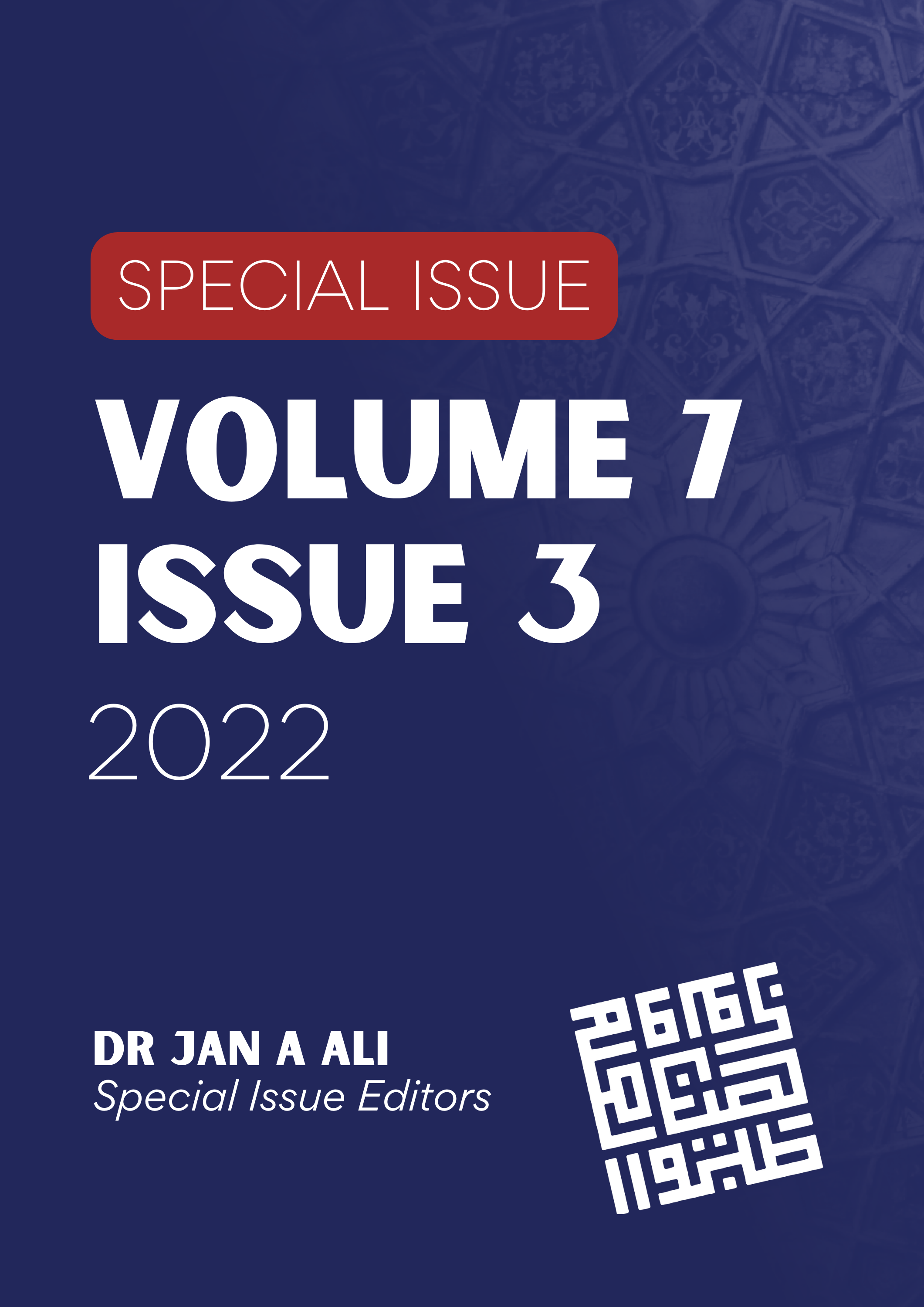Nation-state and Sovereignty in Contemporary Political Discourse: Syed Abul Ala Mawdudi’s Concept of God’s Sovereignty

Abstract
Sovereignty has had a fundamental importance in modern political discourse. Politically, the term ‘sovereignty’ is used as ‘absolute overlordship or complete suzerainty’. Sovereignty is associated with the rise of the modern system of sovereign states, usually dated to the Westphalia treaty (1648). “The fundamental norm of Westphalian sovereignty is that states exist in specific territories, within which domestic political authorities are the sole arbiters of legitimate behaviour”. Hence, Modern nation-states embrace sovereignty limited outside a specific territory but absolute inside the territory itself. In the Muslim world, after experiencing modern nation-states, the question arises whether sovereignty belongs to a single authority, a political body—the state’s ‘artificial person’ or sovereignty entirely belongs to God alone. This question has been discussed in the Muslim world since the twentieth century. Syed Mawdudi is branded by his intense efforts to discuss the concept of political legitimacy, authority and ‘divine sovereignty’ in the nation-state context. Mawdudi’s innovative interpretation of God’s sovereignty (Hakimiyat-ilahiya) contextualised it in modern political discourse, which implies that sovereignty belongs to God alone, the Law-giver. The idea of God’s sovereignty has been a fundamental debate in the political dialogue of the Muslim world. Therefore, focusing on God’s sovereignty, this paper sheds new light on the attribution of this idea and how it has been developed as a political concept in modern nation-states.
Keywords
Mawdudi, Sovereignty, Popular sovereignty, God’s sovereignty , Theocracy, Theo-democracy
References
- Anderson, Gordon. “The Idea of the Nation-State is an Obstacle to Peace.” International Journal on World Peace 23, no. 1 (2006): 75–85. https://www.jstor.org/stable/20753518.
- Bodin, Jean. Six Books of a Commonwealth. Translated and edited by M. J. Tooley. Oxford: Basil Blackwell, 1967.
- Enayat, Hamid. Modern Islamic Political Thought: The Response of the Shi‘i and Sunni Muslims to the Twentieth Century. Bloomsbury Publishing, 2005.
- Grimm, Dieter. “Souveränität—zur aktuellen Leistungsfähigkeit eines rechtlich-politischen Grundbegriffs” [Sovereignty—On the Current Performance of a Basic Legal-Political Concept]. In Souveränität, Recht, Moral Die Grundlagen politischer Gemeinschaft, edited by T. Stein, H. Buchstein and C. Offe, 304–10. Frankfurt/New York: Campus Verlag, 2007.
- Held, David. Political Theory and the Modern State: Essays on State, Power, and Democracy. Cambridge, UK: Polity Press, 2000.
- Heywood, Andrew. Political Theory: An Introduction. United Kingdom: Palgrave Macmillan, 2004.
- Hinsley, Francis. Sovereignty. 2nd ed. United Kingdom: Cambridge University Press, 1986.
- Hobbes, Thomas. Leviathan. Edited by C. B. Macpherson. Harmondsworth: Penguin, 1968.
- Karim, Saleena. Secular Jinnah and Pakistan: What the Nation Doesn’t Know. Dublin: CheckPoint Press, 2010.
- Krasner, Stephen. “Compromising Westphalia.” International Security 20, no. 3 (1995): 115–51.
- Krasner, Stephen. Sovereignty: Organized Hypocrisy. UK: Princeton University Press, 1999.
- Lewis, Bernard. The Political Language of Islam. Pakistan: Oxford University Press, 2002.
- Locke, John. Two Treatises of Government. Cambridge and New York: Cambridge University Press, 1963.
- Love, Maryann. Beyond Sovereignty: Issues for a Global Agenda, 4th ed. Belmont, CA: Wadsworth Publishing, 2010.
- Mahlmann, Matthias. Gründungsmythos und Autonomie—Aspekte der Souveränitä [Founding Myth and Autonomy—Aspects of Sovereignty]. In Souveränität, Recht, Moral Die Grundlagen politischer Gemeinschaft, edited by T. Stein, H. Buchstein and C. Offe, 270–79. Frankfurt/New York: Campus Verlag, 2007.
- Mawdudi, Syed. Four Basic Qur’ānic Terms. Lahore: Islamic Publications, 2000.
- Mawdudi, Syed. Islami Riyasat (The Islamic State: Philosophy, System and Principles of Governance). Lahore: Islamic Publications, 1967.
- Mawdudi, Syed. Khilafat o Malokiat [Caliphate and Monarchy]. Lahore: Islamic Publications, 1966.
- Moaddel, Mansoor. “Secular Politics, Liberal Values, and National Identity.” In The Clash of Values: Islamic Fundamentalism Versus Liberal Nationalism, 83–115. NY: Columbia University Press, 2020.
- Nasr, Syed Veli Raza. Mawdudi and the Making of Islamic Revivalism. Oxford: Oxford University Press, 1996.
- Niesen, Peter. “Souveränität” [Sovereignty]. In Handbuch der Politischen Philosophie und Sozialphilosophie, edited by S. Gosepath, W. Hinsch and B. Rössler, 1205–11. Berlin/New York: Walter de Gruyter Verlag, 2008.
- Nolte, Andrew. “Sovereignty, Islam, and the Modern State: A Comparative Historical Analysis.” PhD diss., Catholic University of America, 2017.
- Rehman, Mohammad. “Nation as a Neo-Idol: Muslim Political Theology and the Critique of Secular Nationalism in Modern South Asia.” Religions 9, no. 11 (2018): 355.
- Rousseau, Jean-Jacques. The Social Contract. Harmondsworth: Penguin, 1968.
- Rousseau, Jean-Jacques. The Social Contract and Other Later Political Writings. Edited by V. Gourevitch. New York: Cambridge University Press, 1997.
- Wimmer, Andreas. Ethnic Boundary Making: Institutions, Power, Networks. Oxford University Press, 2013.
- Zacher, Mark. “The Decaying Pillars of the Westphalian Temple: Implications for International Order and Governance.” In Governance without Government: Order and Change in World Politics, edited by James N. Rosenau and Ernst-Otto Czempiel, 58–101. Cambridge: Cambridge University Press, 1992.
- Zaman, Muhammad Qasim. “The Sovereignty of God in Modern Islamic Thought.” Journal of the Royal Asiatic Society 25, no. 3 (2015): 389–418.